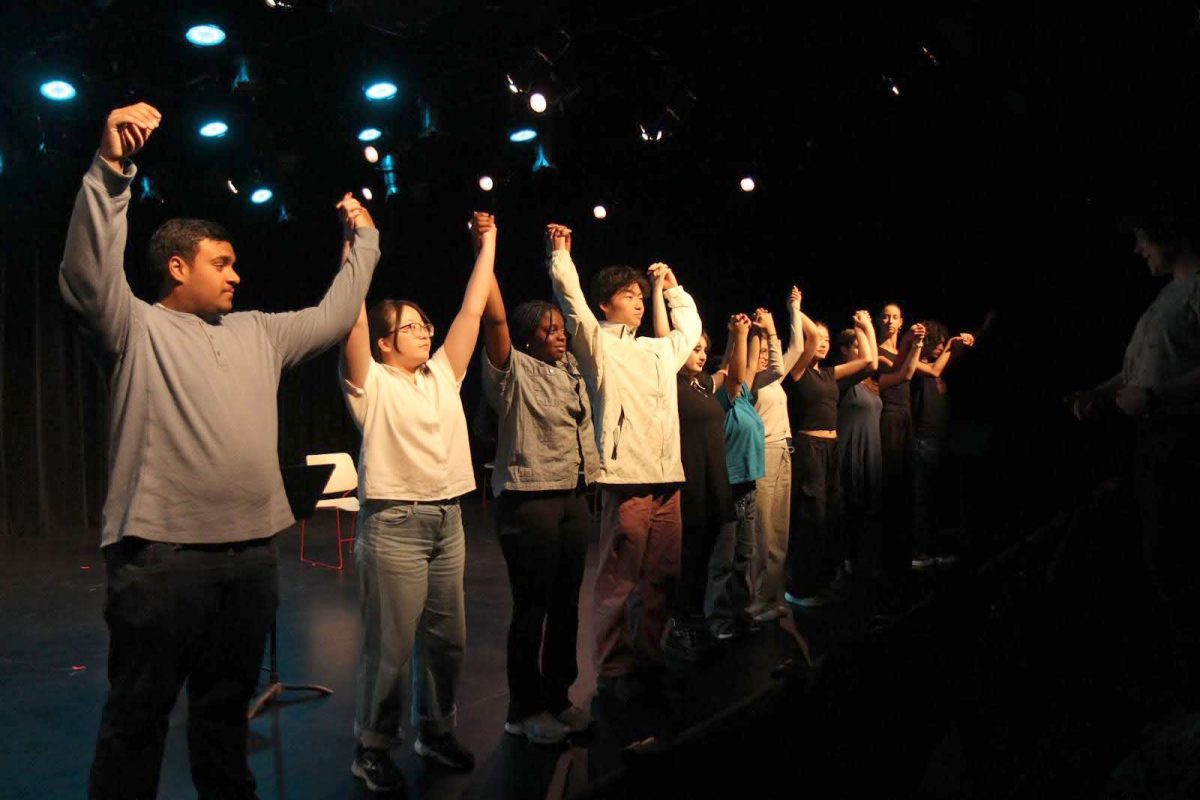On Saturday, your sniffling correspondent braved the snow to attend a screening of one of the nominees for this year’s Independent Film Spirit Awards at Minneapolis’ Walker Art Center. So far, the Walker has already screened half of the 21 indie films on its schedule. The film I attended was one of last year’s biggest horror outings: Ari Aster’s Hereditary.
Aster’s booming debut as a writer-director, Hereditary made a lot of noise in the film festival circuit after its release in 2018. Handled by production company A24, which has facilitated a recent resurgence in indie horror, Hereditary is billed as one of the scariest films in recent memory. It shares ranks with critically acclaimed ultraviolent thrillers such as 2016’s Green Room and The Witch, while borrowing from some of A24’s non-horror work with Oscar nominees Moonlight and Ladybird. Amidst the company’s rich background, Hereditary took the screen by storm with shock and terror. It is a throwback to some of horror’s most beloved and traumatizing classics and became one of A24’s most successful releases. Now, in the thick of awards season, Hereditary has received several nominations.
Hereditary follows the family of Annie Graham (Toni Collette) following the death of her mother at the end of a life plagued by mental illness. She finds herself hiding grief management sessions from her well-meaning husband Steve (Gabriel Byrne) and her two children, 16-year-old pothead Peter (Alex Wolff) and disturbed 13-year-old Charlie (Milly Shapiro). In a horrible twist of fate, Annie is emotionally wrecked by a tragedy displayed in agonizing detail during one of the film’s most disturbing sequences. In the fallout, Aster explores the Grahams’ family dynamics with excruciating closeness. The implications of these dynamics come to a head as Annie uncovers dark secrets about her secretive mother and their horrific implications. But the general consensus of critics is that the less revealed about the plot of Hereditary, the better, as a great deal of its power comes from its ability to shock and awe, moving swiftly between intense family drama to extreme horror.
Hereditary struggles with tonal consistency. Promises of supernatural horror found early on in its chilling score and hallucinatory opening sequences fall quickly by the wayside for a good portion of the film. Following a scene of oppressive tragedy, Hereditary becomes a story of grief and trauma rather than horror and intrigue. Thankfully, Collette, who has received numerous acting nominations, carries these scenes with a quietly intense and authentic performance which is possibly the most compelling aspect of the film. The film’s dim natural lighting, presented through an abundance of slow pans and plodding pacing, creates an intimate atmosphere for Collette to pull the viewer into her story. Hers and other exquisite performances allow the audience to forgive the tastelessness of the ultra-violence and relentless tragedy that besets the Graham family.
Much of this goodwill built up by the cast disappears in the last quarter of the film, which, remembering it is a supernatural horror flick, adds a gauntlet of interesting visual ideas that destroy the grounding of its world. The result is a truly thrilling final 15 minutes, but a tonal disconnect from the relatively down-to-earth middle portion. Any tasteful handling of realistic guilt disappears into ghosts, demons and witches. Still, the great framing of horror shots allows Hereditary’s art direction to flex its muscles. Spooky images of something staring at you from dark doorways and inhuman threats aided by austere yet compelling special effects genuinely scare, despite ruining some of its cohesiveness. Although the emotional core of Hereditary may be reduced by an inconsistent tone, it packs enough engaging performances and quality horror that you’re sure to end up liking something about it. The film positively represents young up-and-coming talent in indie horror and beyond, even though Aster may still be ironing out some kinks. It gives viewers a reason to be excited about new releases from production companies like A24 and the Walker’s remaining lineup of winter screenings.
The Walker will screen the six remaining nominees ending on Feb. 6. For $5 a month, members may still catch a few great upcoming showings. Next week’s En el Séptimo Día is a documentary chronicling the lives of undocumented Mexican immigrants in Brooklyn, and First Reformed is the newest film from famed Taxi Driver director Paul Schrader. However, those without a membership might find the commitment somewhat intimidating – awards season brings about a number of non-exclusive events for cinephiles in the Walker’s lavish cinema. It is currently in the midst of a retrospective of films by director Luca Guadagnino, who is rising in popularity after the success of Call Me by Your Name and his remake of horror classic Suspiria. Fans can also look forward to celebration of talented young filmmakers and a number of screenings from indigenous filmmakers following the Spirit Awards lineup. Any lover of movies will find plenty to enjoy at the Walker this year.








Paul Dowd • Sep 11, 2019 at 9:39 pm
hey there and thank you in your info – I have certainly picked up anything new from right here. I did then again experience several technical points the use of this web site, since I experienced to reload the website many instances prior to I may get it to load properly. I were puzzling over in case your web host is OK? Not that I’m complaining, however slow loading instances times will often impact your placement in google and could damage your quality score if advertising and ***********|advertising|advertising|advertising and *********** with Adwords. Well I am including this RSS to my e-mail and can look out for a lot extra of your respective exciting content. Make sure you update this once more very soon..
Peter Morgan • Sep 10, 2019 at 3:22 pm
It’s really a nice and helpful piece of info. I’m glad that you shared this helpful info with us. Please keep us up to date like this. Thanks for sharing.